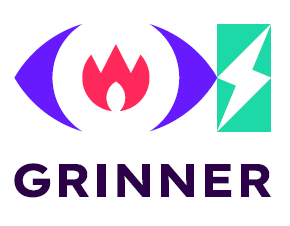 27/11/2022
27/11/2022A project that will develop an AI-powered battery detection system utilising data from x-ray detectors and pick-and-place robots has commenced on the 1 September.
GRINNER, funded through the European Union’s Horizon Europe programme, will focus on trying to reduce the impact of one of the key issues that is currently affecting the waste electrical and electronic equipment (WEEE) management chain; that of fires caused by batteries. Such fires cost waste management facilities millions of euros every year, force facilities to close for months if not years, and act as a strong barrier to making Europe circular and carbon neutral.
The fires are caused when some battery types located inside discarded WEEE, in particular lithium-ion (Li-ion) and nickel-metal hydride (NiMH), are damaged and, as a result, ignite or explode.
The GRINNER project aims to commercialise an autonomous AI-enabled robotic sorting system capable of detecting and removing e-waste containing batteries from processing conveyor belts before they are damaged by machines that crush and consolidate waste. The system will comprise (i) an energy-resolved x-ray detectors; (ii) a software enabled module that will analyse x-ray data and effectively detect waste containing batteries that is then removed by a vision-based pick-and-place robot. The primary output of the GRINNER system will be a low-weight, super-fast, automated battery identifier that can be easily incorporated into existing WEEE and other similar recycling environments, to extract batteries and battery containing items, safely and effectively.
Led by LYNQ, a company specialising in and manufacturing execution system software, the GRINNER consortium comprises an interdisciplinary team of experts from seven research and industry organisations across the same number of European countries.
Mark Gregory, CEO of LYNQ, said, “The project will develop and bring to market the first automated robotic system capable of detecting batteries incorporated within e-waste. The proposed activities will enable the technology to be demonstrated at the Green WEEE recycling plant in Romania, which, we anticipate, will show an effective technology resulting in a reduction in direct costs for operators while minimising environmental impact.”
As part of this collaboration, the WEEE Forum and its member ERION Compliance Organization (ECO), will contribute with expertise in the management of e-waste and lead on the communication aspects of GRINNER. In addition, WEEE Forum will help provide an end-user perspective on WEEE recycling and awareness of battery fires using its extensive global network as well as fostering exploitation of the results and models through a strong network in the waste management and WEEE Recycling industry.
About
The WEEE Forum a.i.s.b.l. is an international association representing 51 producer responsibility organisations across the globe. Together with our members, we are at the forefront of turning the extended producer responsibility principle into an effective electronic waste management policy approach through our combined knowledge of the technical, business and operational aspects of collection, logistics, de-pollution, processing, preparing for reuse and reporting of e-waste. Our mission is to be the world’s foremost e-waste competence centre excelling in the implementation of the circularity principle.
Transparency Register ID 702397445-73.
Copyright 2019 All Rights Reserved
Contact
BluePoint conference and
business centre
Boulevard Auguste Reyerslaan 80
B-1030 Brussels
Belgium
Newsletter
Subscribe to our mailing list to get the updates to your email inbox.